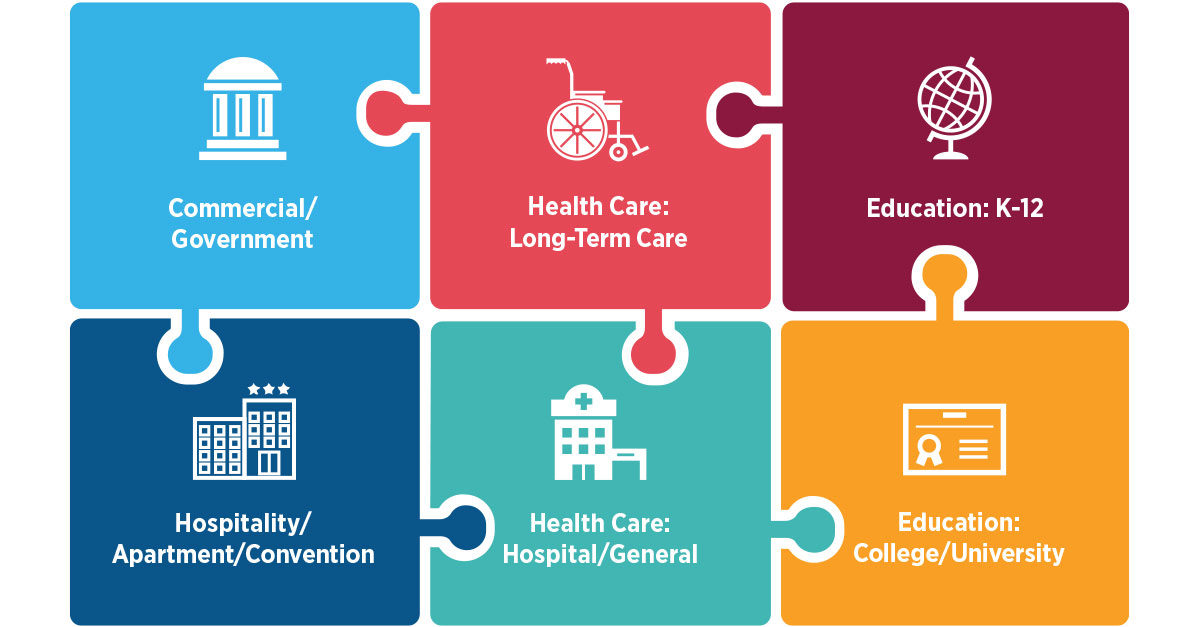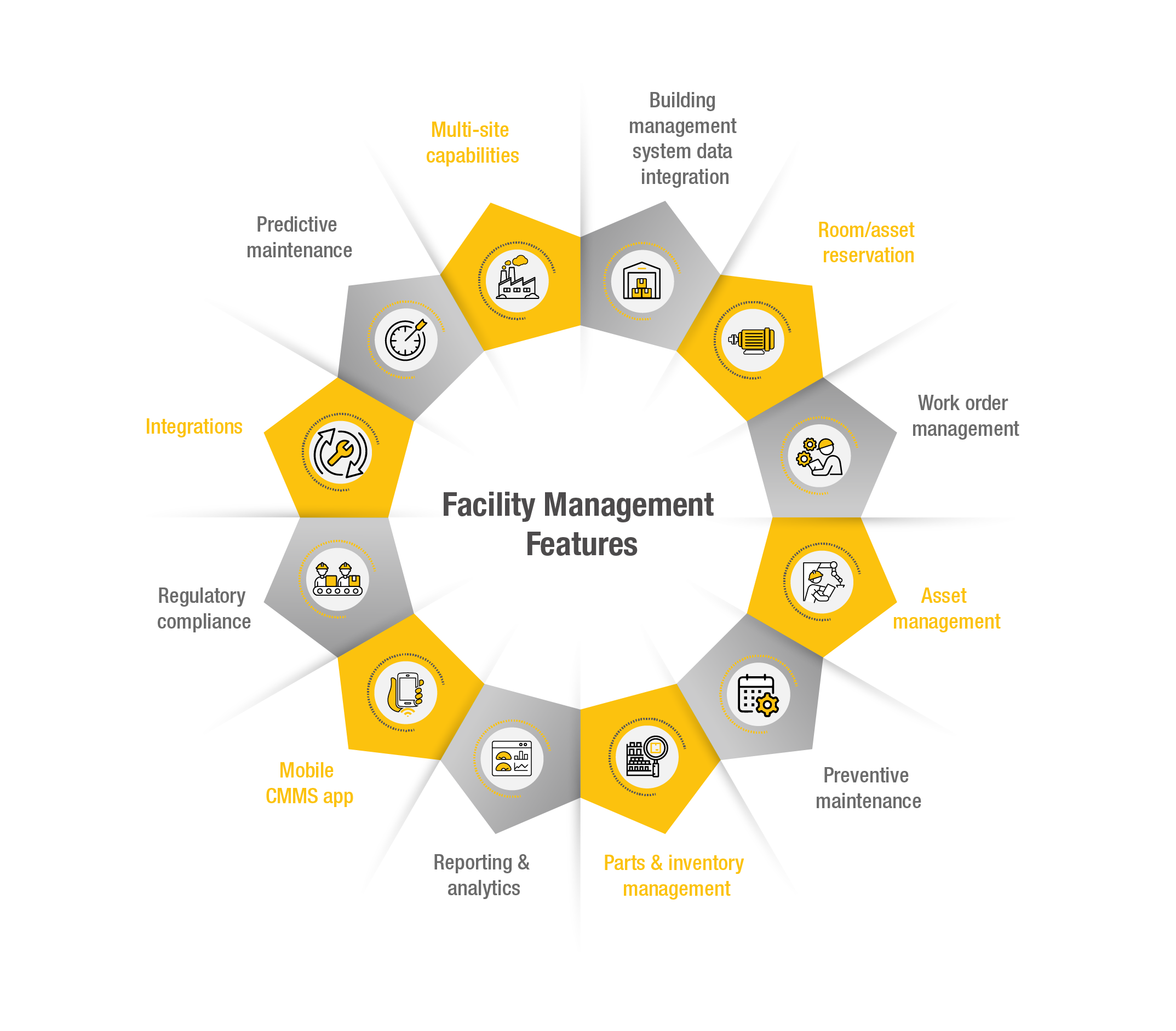Best Practices in Facility Management for Modern Businesses
Best Practices in Facility Management for Modern Businesses
Blog Article
Secret Trends Forming the Future of Center Management in 2024
As we look ahead to 2024, the landscape of center management is poised for considerable transformation, driven by numerous crucial fads. The combination of smart structure innovations and a change in the direction of data-driven decision-making pledge to improve operational effectiveness while focusing on sustainability in technique.
Smart Structure Technologies
Smart structure technologies encompass a broad array of systems, consisting of smart illumination, a/c controls, and security systems. By integrating these systems, facility supervisors can keep an eye on and readjust criteria in real-time, causing substantial decreases in power waste and functional expenses. For example, wise sensors can identify tenancy degrees and adjust illumination and temperature appropriately, making certain that energy is only made use of when necessary.
In addition, these innovations facilitate boosted data collection, permitting organizations to track usage patterns and recognize chances for additional improvements. The execution of clever structure innovations not only adds to sustainability goals but also develops much healthier workplace that can increase employee efficiency and complete satisfaction.
As we relocate into 2024, the adoption of clever structure innovations will likely accelerate, mirroring a broader change towards more intelligent, responsive, and sustainable facility administration practices.
Data-Driven Decision Making
Increasingly, companies are leveraging data-driven decision making to improve facility administration techniques. By taking advantage of data analytics, facility managers can obtain actionable insights that considerably enhance operational efficiency and source allowance. The assimilation of advanced innovations, such as IoT sensing units and real-time monitoring systems, enables the collection of huge quantities of data on building efficiency, occupancy prices, and power intake.
This wealth of details allows center supervisors to determine fads, forecast maintenance demands, and proactively address concerns before they intensify. Predictive analytics can anticipate equipment failings, minimizing downtime and repair work costs. Furthermore, data visualization devices promote much better communication among stakeholders, guaranteeing that notified choices are made collaboratively.
Additionally, data-driven methods improve calculated preparation by making it possible for facility supervisors to examine the performance of current techniques and make educated selections regarding financial investments in technology or infrastructure. As organizations increasingly focus on operational excellence, data-driven decision production is poised to end up being a foundation of effective facility administration strategies in 2024 and past. Ultimately, the capacity to leverage information successfully will equip companies to produce much more effective, productive, and resilient facilities.
Sustainability and Environment-friendly Practices
The focus on data-driven choice making normally aligns with the expanding emphasis on sustainability and environment-friendly methods within center management. As companies progressively prioritize environmental duty, center managers are leveraging analytics to maximize source use, lower waste, and lessen carbon footprints. This critical strategy makes it possible for the integration of energy-efficient systems, such as LED lights, wise HVAC controls, and sustainable energy resources right into facility procedures.
Moreover, the application of lasting practices prolongs past energy intake. Facility supervisors are advertising and adopting environment-friendly products recycling initiatives to develop a round economy within their facilities. This not just improves the ecological web account of the organization however likewise fosters a culture of sustainability amongst staff members.
Compliance with environmental policies is an additional vital facet driving the adoption of eco-friendly techniques. By making use of data analytics, facility managers can keep track of compliance metrics and recognize areas for improvement, guaranteeing adherence to global and neighborhood sustainability standards.
Crossbreed Job Versions
A substantial change in the direction of hybrid work versions is improving the landscape of center monitoring in 2024. This standard integrates in-office and remote job, demanding a reevaluation of area use, source allocation, and employee engagement approaches. Organizations are significantly identifying the importance of flexible work spaces that accommodate varied requirements and preferences.
Center managers must adapt by implementing versatile office styles that support collective efforts while giving locations for concentrated job. This consists of the assimilation of modern technology to help with smooth interaction and collaboration amongst remote and in-office employees. Smart building solutions, equipped with analytics and sensors, enable real-time tracking of space usage, making it possible for companies to maximize their settings successfully.
Furthermore, crossbreed work designs emphasize the demand for efficient center administration that focuses on employee experience. In significance, the hybrid job model is reinventing center monitoring, encouraging an aggressive approach to satisfy the advancing demands of the labor force.
Enhanced Passenger Health
As organizations accept hybrid job models, an enhanced emphasis on resident wellness is coming to be indispensable to center management techniques. Facility Management. This shift acknowledges that a healthy and balanced and satisfied labor force directly affects performance and retention prices. Center supervisors are now focusing on atmospheres that advertise physical and psychological health, integrating aspects such as all-natural lights, biophilic layout, and accessible wellness resources

Modern technology plays an important duty in this evolution. Smart building systems can keep an eye on ecological factors and adjust settings in real-time, making sure optimum comfort levels - Facility Management. Responses mechanisms, such as occupancy sensors and employee surveys, allow center supervisors to constantly refine wellness initiatives based on occupant needs.

Conclusion
In 2024, the future of facility administration will be significantly affected by the integration of wise structure technologies and data-driven decision-making, promoting boosted functional performance. Sustainability efforts will prioritize green practices, while the appearance of hybrid work designs will certainly demand i was reading this flexible office layouts. A heightened emphasis on resident wellness via innovative Heating and cooling systems and biophilic style will contribute to healthier work atmospheres. These patterns collectively underscore the developing landscape of facility management in reaction to contemporary challenges and opportunities.
Facility supervisors are taking on green products and promoting reusing efforts to create a round economic climate within their centers.A substantial shift towards crossbreed work designs is reshaping the landscape of center administration in 2024.Additionally, hybrid job models right here stress the requirement for effective center management that focuses on employee experience.As companies embrace hybrid job models, an enhanced focus on passenger wellness is ending up being integral to center management methods.In 2024, the future of center administration will certainly be substantially affected by the assimilation of smart building modern technologies and data-driven decision-making, cultivating improved functional efficiency.
Report this page